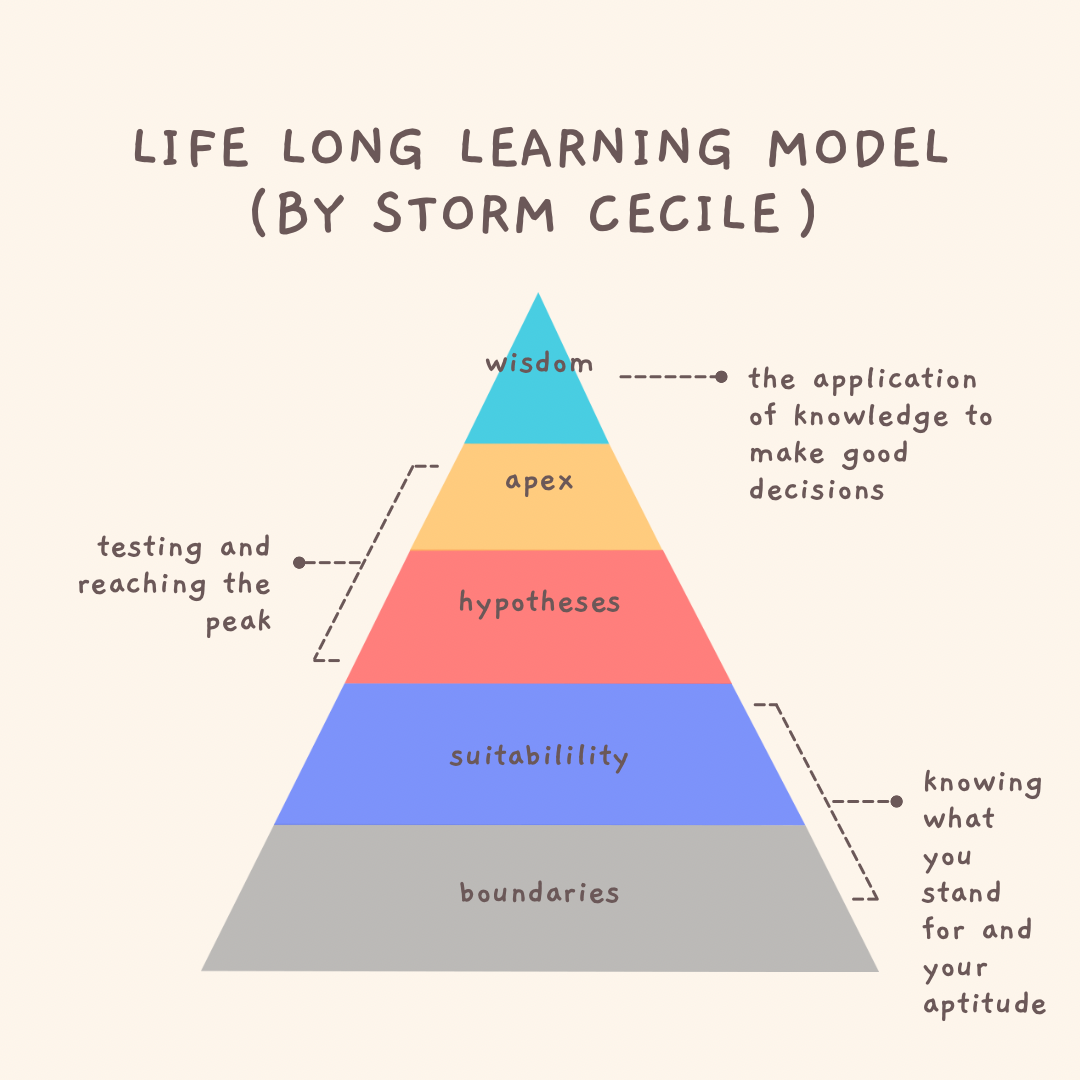How to Incorporate Life Long Learning Into Your New YearSample

Day 5: Plan in Action
I’ve created a Life-Long Learning Model (LLL Model) inspired by the book of Daniel. It’s a framework designed to guide growth through learning, discipline, and wisdom.
Level 1: Boundaries
At the foundation of the model lies boundaries. Daniel lived in a culture that contradicted his faith in the one true God, yet he resolved not to defile himself with the royal food and wine. Similarly, effective learning begins with parameters—ethical standards, constructive goals, and emotional safeguards.
Good learning thrives within good boundaries. For example:
- If I want to test the hypothesis that waking up an hour earlier improves emotional clarity, I must adjust my nighttime routine to protect my brain and overall well-being.
- If I want to test whether fasting once a week heightens spiritual awareness, I need safeguards like ensuring proper nutrition to maintain health while fasting.
Boundaries protect the integrity of our learning processes and ensure we honor both physical and spiritual well-being.
Action: Daniel had a clear routine—he prayed three times a day. He also stayed away from practices that would defile Him. Make a list of the things that you aim to stay away from. Put boundaries in place to ensure that you can stay away from them. Like Daniel, share them with someone.
Level 2: Suitability
This level focuses on aptitude—developing the skill and discipline required for growth. It’s about building proficiency through learning and practice, regardless of external circumstances.
Daniel exemplified this by maintaining his commitment to God while excelling in his role within a volatile environment. This stage is the training ground where we sharpen our abilities and develop consistency in pursuit of excellence.
Action: Think about where your aptitude is—write it down. Then, consider whether you are disciplined to follow through in developing in that area well. If not, consider a plan of action to develop discipline. Write down potential accountability partners, classes, courses, and routines you can do to advance in your chosen area of skill or activity.
Level 3: Hypothesis
The third level involves testing—hypotheses, ideas, and skills. This is the experimental phase, where learning is refined through application.
For instance, Daniel tested his commitment by living only on vegetables and water to avoid defiling himself, demonstrating that his faith and discipline yielded positive results. Similarly, we must test our theories and approaches to ensure they hold up in real-world contexts. Testing builds confidence and clarity in our growth.
Action: Connect a hypothesis to the different areas of your life where you would like to incorporate learning. For example, if you are interested in learning more about plants, you could form a hypothesis such as: “If I pause once a day to observe flowers, I will become more curious about them and naturally learn more about God’s creation as a whole.”
The goal is to integrate the hypothesis into your everyday routine so that learning becomes a natural and seamless part of your life rather than a forced activity.
Level 4: The Apex
The fourth level represents the pinnacle of learning—a standard, goal, or vision to which we aspire. At this stage, we look to mentors or exemplars who excel in the area of growth we wish to achieve.
For Daniel, his ultimate aim was wisdom and divine understanding alongside glorifying God. Reaching this apex requires a clear vision and the determination to pursue excellence with intention and dedication.
Action: Write down what the apex represents for your chosen area of learning, and create a routine that aligns with and supports this goal. This may require some research; look into people that are where you desire to be, do some reading and pray.
Level 5: The Peak: Wisdom
At the top of the model lies wisdom. This is the ultimate goal of life-long learning—not merely understanding but applying knowledge with care and purpose. True wisdom allows us to share what we’ve learned and serve the people we are called to impact.
Take a moment to reflect on the chart. Where do you currently stand in the hierarchy of learning? God is calling each of us to grow—not just in knowledge but in wisdom. By following Daniel’s example, we learn to trust that God, not man, is our ultimate provider and guide.
Let’s commit to learning, growing, and serving with the wisdom God calls us to embody.
Action: Pray—ask God for wisdom and in turn, take time to hear God's response.

Scripture
About this Plan

Commit to lifelong learning in 2025 with this practical Bible plan. Explore biblical wisdom and growth by seeking God’s guidance, developing the discipline of a lifelong learner, and applying your knowledge to serve others, like Daniel. Learn how testing new practices, embracing challenges, and striving for excellence can deepen your relationship with God. Whether you want to grow spiritually, improve your skills, or serve others, this plan will inspire and equip you to become a lifelong learner in every area of life.
More
We would like to thank Storm Cecile for providing this plan. For more information, please visit: https://www.stormcecile.com/
Related Plans

Cherished & Chosen: A 7-Day Challenge for Single Women

Holy Spirit - Breath of God

From Empty to Overflow: Simple, Science-Based Strategies for Those Who Serve

Love at Work

Dear Black Woman, You Are Not Alone in Your Grief

Unboxed: Built on Purpose

Boundaries: A Biblical Perspective

Journey Through 1 & 2 Peter and Jude

Journey Through Revelation
